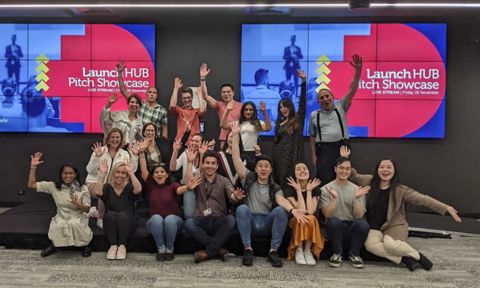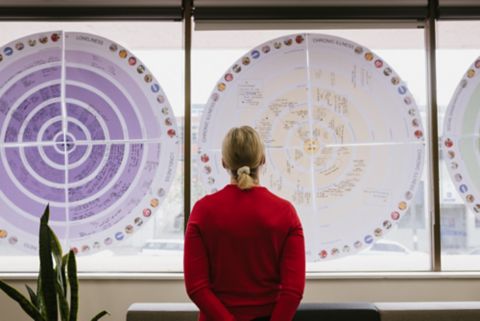Why chose RMIT for postgraduate studies?
Christie: I knew I wanted to study advertising since I was in high school. I did a lot of research and found out that RMIT has the most suitable and practical courses for my career path among other universities in Australia. The syllabus of the Master of Advertising was highly aligned with what I want to learn and what I want to do for my career, so it was a very simple choice for me to go with RMIT.
Hazel: I had the idea of starting my own business as I saw the future opportunities in IT, which made me want to find a way to get into this industry.
RMIT is well-known for providing practical learning and the Master of Business Information Technology course at RMIT was a quite good choice for people who don’t have any IT background but still want to explore this industry and connect it with business.
How was the transition from China to Australia? Did you face any difficulties and how did you manage them?
Christie: Even though I came to Australia when I was young, it was still my first time living and studying by myself. My biggest challenge at that time was communication. My English wasn’t that good and I [wasn’t] familiar with the culture.
I think the way to overcome this challenge is just to be brave and reach out to the people around you. I am sure there are a lot of people out there who are willing to help you! I met so many people who have helped me [in] different aspects along the way.
What is one thing you miss about being a student at RMIT?
Christie: I miss all the lecturers at RMIT and I think they were very good at supporting students. In fact, I am still in contact with two of my lecturers and they became our business partners recently.
Hazel: Melbourne is a multicultural city and the cozy lifestyle here attracted me to study in Melbourne. I miss the coffee shop at Building 80. I had many night classes during my master’s degree and that coffee shop opened very late, so I was able to get a coffee even at night!
How was your RMIT experience and how did it support you in your career?
Christie: From an educational perspective, RMIT has taught me a lot of industry-related knowledge, which was super helpful for me to get myself into the industry. [In comparison to] my previous study experience, RMIT has truly updated their courses to the latest industry practices.
[RMIT courses] involve a lot of lecturers and tutors who are working in the industry, [and invite them] to share their experiences. A lot of case studies that I learned back then are exactly what I am doing now.
From the student support and career perspective, RMIT [provides] a lot of guidance and support to international students. For example, I recently got invited back to the university for a career workshop and shared my experience and tips on finding a job in Australia as an international student.
Our company is one of the employers within RMIT’s internship program and we provide intern opportunities for international students who are interested in pursuing careers in cross-border marketing. We’ve also been working with RMIT to post job ads on RMIT CareerHub and it has helped us recruit a handful of international talents from RMIT, from design to marketing.
What are the difficulties of starting a business in Australia as an international student and how did you overcome them?
Christie: We didn’t grow up in Australia, so everything is new to us. We were total strangers to all business-related policies, operation rules [and more]. However, the good thing is that all the information is available online through authorised organisations [and] it’s 100% transparent to people, [so] there are no hidden rules.
What are some of the highlights of your career?
Christie: We started with a team of four and now we have thirty people. And back then, we only offered limited services for our clients and now we are providing full, comprehensive and go-to-market strategies and solutions. There’s growth in the team members, services offering and market coverage every year.
Hazel: Starting my own business and setting up teams in different countries.




